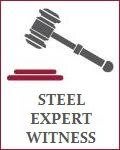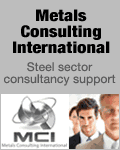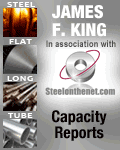History of POSCO 
The Pohang Iron & Steel Company was established in 1968. As at end-2022, POSCO was the sixth largest steelmaker in the world, producing ~39 million tonnes of crude steel.
The timeline below covers the history of the firm.
- 1968: Pohang Iron and Steel Co., Ltd. founded.
- 1970: Construction commenced of the Pohang Works.
- 1983: Construction started of the Gwangyang Works.
- 1987: Construction of headquarters completed in Pohang.
- 1988: Pohang Iron and Steel Co part privatised.
- 1988: Stock of Pohang Iron and Steel listed stock exchange in Korea.
- 1994: ADRs listed on the New York stock exchange.
- 1994: Creation of two subsidiary companies, POSTEEL & POSTRADE.
- 1995: Construction of Corex plant completed.
- 2000: Privatisation of Pohang Iron and Steel Company completed.
- 2002: Change of company name to POSCO.
- 2003: Opening of the POSCO Museum.
- 2004: Participation in Benxi jv [China, cold rolling].
- 2005: Orissa state & POSCO sign Indian new plant agreement.
- 2005: Construction of Zhangjiagang stainless plant in China.
- 2005: Completion of Gwangyang LNG Terminal.
- 2005: POSCO ADRs listed on the Tokyo stock exchange.
- 2006: Construction of #1 Finex plant 1.5 mt/year capacity.
- 2008: Rumours of prospective bid for Daewoo Shipbuilding.
- 2009: Acquisition of Asian Stainless Corp in Vietnam.
- 2009: Coating line completed in Mexico [galvanized auto sheet].
- 2010: Indian government orders suspension of POSCO project work.
- 2010: Acquisition by POSCO of Daewoo International.
- 2011: Purchase of stake in Thainox - large stainless steel producer.
- 2012: India suspends POSCO plant environment licence in March.
- 2012: Plan revealed for $1.5bn capacity expansion in Maharashtra.
- 2013: POSCO consortium buys 15% of ArcelorMittal Mines Canada.
- 2013: Plans new steel mill with Chongqing as a 50/50 jv.
- 2014: Posco & Chongqing Iron & Steel sign agreement for $3.3 bn investment.
- 2014: Announces plan to build car assembly plant in KSA.
- 2015: Suspends planned $12 billion Odisha steel project.
- 2015: Warns of first-ever full-year loss as China slowdown hits.
- 2015: Seeks buyer for 2 year old DRI plant in Pakistan.
- 2016: Posco involved in bid for Australia's Whyalla Steel.
- 2017: Odisha cancels land allotment to Posco project.
- 2018: Signs deal to buy lithium mining rights in Argentina.
- 2018: Announces 5-year $40bn capex programme to improve competitiveness.
- 2019: Sets up lithium jv with Pilbara Minerals.
- 2020: Starts discussions with RINL about 5 mt/yr greenfield steel plant in Vizag.
- 2021: Contemplates exit from Myanmar jv in wake of February military coup.
- 2021: Announces $12 billion plan for integrated steel plant in North Indian state of Odisha.
- 2022: Launches ‘Future Technology Research Center’, an R&D control tower for new growth projects.
- 2022: POSCO and Adani sign MoU for eco-friendly integrated steel mill.
- 2022: Builds electric vehicle battery recycling plant in Poland.
- 2023: Invests in construction of Korea's first lithium hydroxide plant.
- 2024: Expands coking capacity at Pohang Works.
- 2024: Slows pace of investment in battery metals because of supply glut.
- 2024: Signs MoU with JSW Steel to build 5 mt/yr integrated steel plant in India.
Notes
- Creation of POSCO was as the result of Government deliberations during the 1960s that self-sufficiency in iron and steel and construction of an integrated steel plant were essential to Korea's economic development.
- Construction of the first steel works at Pohang was funded by money received from Japan. This funding was part of a compensation payment received from Japan for its colonial rule of Korea.
- In 1986 US Steel entered into a 50:50 joint venture with Pohang Iron and Steel Company to modernize its Pittsburg plant (California) - to supply the facilty with high quality steel. This venture is now known as USS-POSCO Industries, and operates cold rolling and coating plant on the West Coast.
- 1988: Until the part privatisation, ownership of POSCO was held by the Ministry of Finance and the Government-owned Korea Development Bank.
- 1988: POSCO's Indian project centres on a $12 billion steel-making complex, which includes a power plant and a port.
- 1994: POSTEEL is the domestic sales distribution company, whilst POSTRADE handles POSCO's foreign distribution and product sales.
- 2010: According to some analysts, the purchase of Daewoo was at a price significantly above market value.
- 2012: Capacity expansion project at steel plant in Maharashtra is for reprocessing of austenitic and cold rolled stainless steel at the facility in the Vile-Bhagad and Palasgaon industrial area in Raigad district.
- 2013: POSCO signed a preliminary agreement in 2010 to build a ~6 million tonne per year steel plant in the southwestern Indian state of Karnataka. POSCO abandoned this project in mid-2013 because of deteriorating market conditions and because of delays in securing mining rights.
- 2014: According to South Korea's trade ministry, POSCO in mid-2014 signed a Memorandum of Understanding with Chongqing concerning investment in a 3 mt/year steel plant in western China.
- 2014: POSCO signed MoU to explore new business opportunities with Saudi Arabia’s sovereign fund. These opportunities were at the time thought to be connected with Daewoo International Corporation's plans to build an automobile assembly plant in the Kingdom.
- 2015: Newly-cancelled $12 billion Odisha project was set up in 2005 - when it was regarded as India's biggest foreign direct investment - but encountered a series of delays. The company waited almost a decade to acquire land for the proposed 12 mt/year steel plant because of opposition from local tribal groups. A mining law enacted in March 2015 would also have required POSCO to purchase a mining license in an auction.
- 2015: Regarding this DRI plant, Tuwairqi Steel Mills Ltd was a venture between Posco and Saudi Arabia'a Al-Tuwairqi Group which was inaugurated in 2013, but never became operational because of subsequent government disputes concerning the price of natural gas (a principal input for direct reduction of iron ore).
- 2016: November 2016 talks were reportedly held between POSCO executives and Arrium about the sale of the Whyalla Works, and the search for a viable buyer with long-term commitment.
- 2018: Lithium mining rights in Argentina were acquired from Galaxy Resources for $280 million. POSCO later announced plans that it would build a lithium plant in Argentina, intending to produce 25,000 tonnes of the commodity per year for 20 years starting from 2021.
- 2019: Australia’s Pilbara Minerals Ltd in August 2019 executed a binding terms sheet with POSCO for formation of a joint venture in South Korea to develop and operate a lithium hydroxide and carbonate chemical conversion facility.
- 2020: POSCO-RINL investment in the new 5 million tonne / year Vizag steel mill is estimated to cost Rs 35,000 crore.
- 2021: POSCO joint venture in Myanmar involves a 70% stake in a steel sheet manufacturing venture with military-controlled Myanmar Economic Holdings Ltd (MEHL).
- 2021: POSCO had initiated a greenfield steel project in Odisha in 2005, but could not make much headway following protests from local population. New project is understood to be a renewal of the former 2005 mega steel project.
- 2022: It is understood that the new technology research unit will review commercial opportunities for POSCO in growth areas such as artificial intelligence.
- 2022: Initiative with Adani centres on a non-binding memorandum of understanding for establishment of an environmentally-friendly integrated steel mill at Mundra, Gujarat (India). The capital investment cost is estimated to be up to US $5 billion. POSCO and Adani are also understood to have signed an MoU with the Government of Gujarat for support and cooperation from the Government for the project. The Adani Group, established in 1988, comprises a portfolio of diversified Indian businesses with interests in logistics (airports, seaports, shipping and rail), power generation and distribution, renewable energy, gas and other sectors.
- 2022: The Polish EV battery recycling plant - known as PLSC (Poland Legnica Sourcing Center) - is located in Brzeg Dolny and will produce 7000 tons of black mass per year. ['Black mass' refers to e-waste comprising crushed and shredded end-of-life battery cells. It contains a mixture of valuable metals including; lithium, manganese, cobalt and nickel.]
- 2023: The new lithium plant in Yulchon 1st Industrial Complex in Jeollanam-do (South Jeolla Province) is expected to have annual production capacity of 25,000 tons. It will serve the metal needs of the secondary battery sector.
- 2024: In mid-2024 POSCO commissioned coking plant No. 6 at Pohang Iron and Steel Works in North Gyeongsang province. The asset consists of two coke oven batteries with the total capacity of 1.5 million tonnes / year, supplied by the SMS Group.
- 2024: As at Q4 the location of the new POSCO/JSW mill was still unknown.
Back to Knowledge Base Index

Quick Navigation
WEBSITE HUBS
Steel News Hub
Price Hub
Knowledge Base
History Hub
Advice Hub
Supplier Hub
Technology Hub
M&A Data Hub
Steel Action Plan NEW
WEBSITE HUBS
Steel News Hub
Price Hub
Knowledge Base
History Hub
Advice Hub
Supplier Hub
Technology Hub
M&A Data Hub
Steel Action Plan NEW
© 2001 -
2025 Steelonthenet.com. All rights reserved.
To contact us about this historic profile of POSCO please email info@steelonthenet.com.
To contact us about this historic profile of POSCO please email info@steelonthenet.com.







